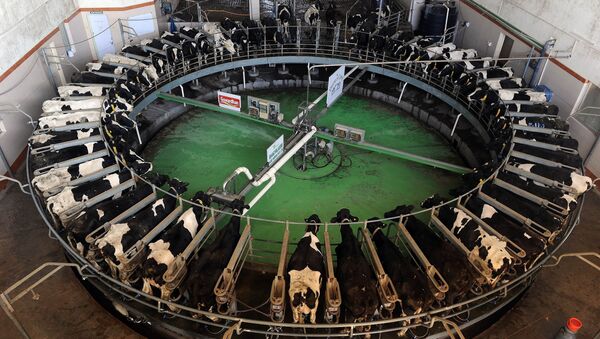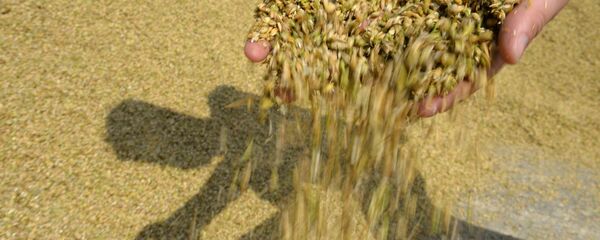New Delhi (Sputnik) — The ten-year-old Indo-Israeli Agriculture Project (IIAP) has now entered a new phase, with India and Israel getting ready to jointly develop new crop varieties and to share post-harvest technologies. Use of robotics in agriculture is another area of cooperation and sharing technological know-how. A group of Indian scientists is currently in Israel for an exposure tour and training program, where they expect to learn the application of artificial intelligence in agriculture and dairy farming. Sputnik spoke to Dr. Suyog Jhavar before he left for Israel on a ten-day training to learn the use of robotics in Indian agriculture from Israeli experts.
READ MORE: Irradiation is Safe, Best Method for Food Preservation — Research Center
Sputnik: Dr. Jhavar, what are you expecting to learn from this training?
Dr. Jhavar: The objective of this cooperation between India and Israel is to share best practices. We look forward to avail and learn the advanced technical knowledge from Israel during this cooperation. This Indo-Israel exchange program was launched in 2008 and young scientists and agriculturists are encouraged by the government and private agencies to be part of this knowledge exchange and mutual learning. We are very hopeful that the technologies we train in will have better application in India, with some tweaking to adapt to the local climate and technological ecosystem.
Sputnik: Tell us more about yourself. You come from a mechanical background but how did you happen to find interest in agriculture?
READ MORE: India and Israel to Intensify Science and Technology Cooperation
Sputnik: What is the duration of the exposure program and which locations in Israel will you be visiting?
Dr. Jhavar: This agricultural study tour for Indian scientists will be between 2nd of May to 10th of May and we would be visiting facilities in Haifa, Tel Aviv, Jerusalem. It will also include visits to Kibutz — the famous Israeli agricultural collective communities as well as exhibitions of agricultural technology innovations.
READ MORE: India, Israel Use Soft Power of Cinema to Cement Collaboration
Sputnik: Is India focusing on robotics because it sees immediate opportunities for its local application?
Dr. Jhavar: The visit to an Israeli innovation center focusing on water technology and agriculture will be a great learning for us. Additionally, we have a learning session with a robotic cow farm dairy, where we will witness and learn about the automated procedure to extract milk at appropriate timings, cow feeding system, open sheds, etc. All these are environmentally sustainable and climatically adjustable projects which have immense application in a country like India, which has different climate zones.
The views and opinions expressed by Dr. Suyog Jhawar in this article are those of the speaker and do not necessarily reflect the position of Sputnik.


